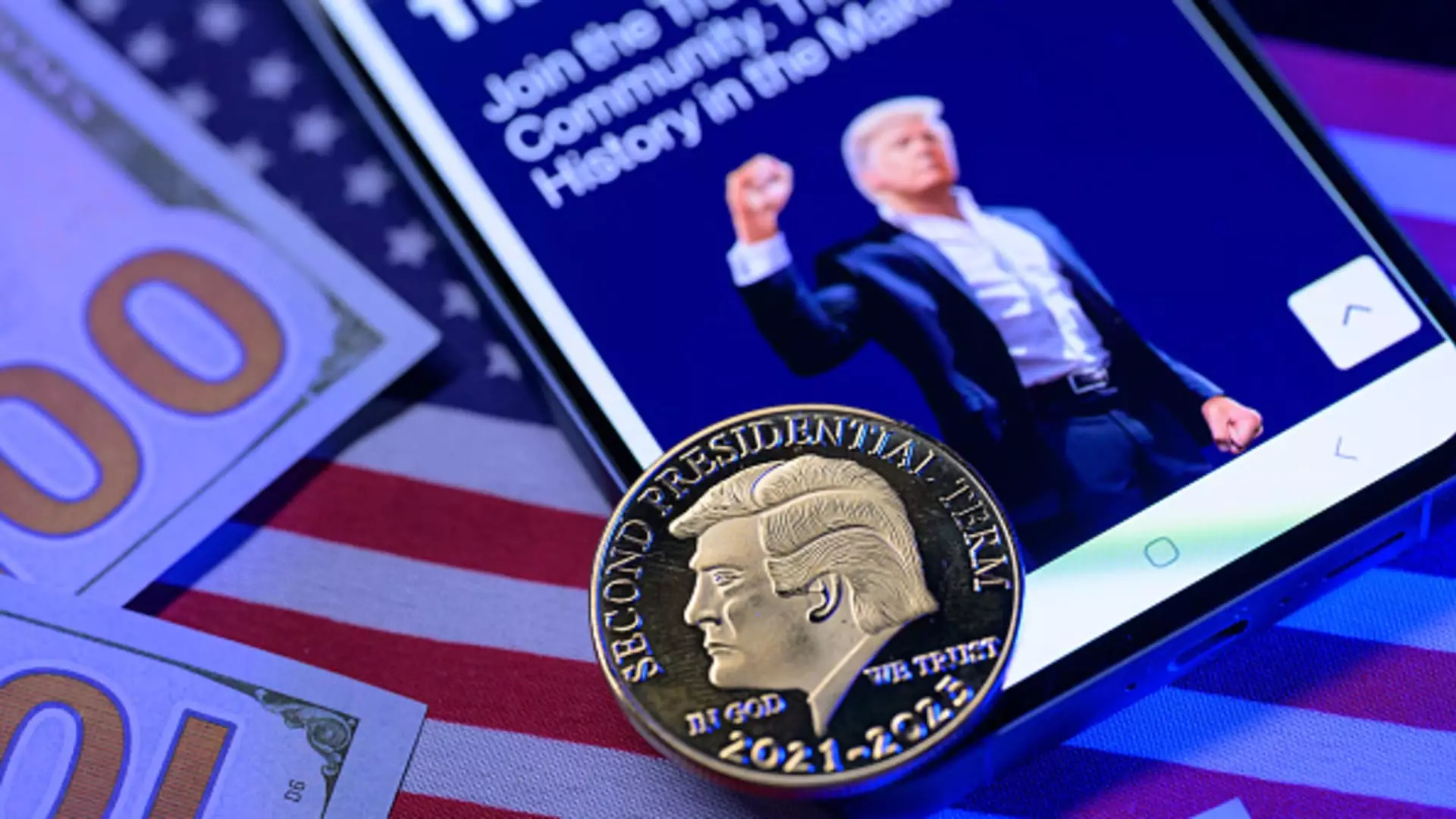As the world watches, a gathering of select individuals linked to the $TRUMP meme token is set to take place within the opulent grounds of President Donald Trump’s Virginia golf club. Scheduled for May 22, this exclusive dinner invites the top 220 holders of the token, a move that has stirred both excitement and skepticism within financial and political circles. The intrigue rests not solely on the attendees’ considerable financial stakes but also on the enigmatic nature of their identities—pseudonymous wallets that hint at hidden motives and global interests.
Such a clandestine collection of wealth raises pertinent questions about the implications of this unprecedented event. Why would someone desire to share a meal with a sitting president? An analysis conducted by blockchain firm Inca Digital reveals that the wealthiest holders are often entwined with international exchanges like Binance, known for not servicing U.S. customers. This detail implies that many of these top investors may reside beyond American borders, taking this political engagement to a global stage.
The Global Landscape of Crypto Wealth
The blockchain world operates under a veneer of anonymity, but the larger dynamics at play are hard to ignore. Notably, a ponderous report from Bloomberg identifies that 19 out of the top 25 wallets are likely owned by foreign players, casting a shadow over the American political fabric. Justin Sun, a known figure in the crypto community, leads the pack having acquired $75 million worth of the Trump-associated World Liberty Financial token, which funnels a significant portion of its proceeds to Trump’s affiliated entities. The presence of global entrepreneurs complicates the narrative beyond mere investment, suggesting aspirations that intertwine finance with policy-making at an unprecedented level.
This dinner isn’t merely a celebration of wealth; it exemplifies an intriguing trend where capital meets political access. Foreign entities buying $TRUMP tokens are not driven just by profit; they envision influence, a seat at the table ready for fostering relationships that can yield transformative policy decisions. Take Freight Technologies, for example. Despite its modest $2.3 million market cap, the company invested $2 million into the $TRUMP tokens, showcasing an overt interest in swaying U.S.-Mexico trade discussions. This scenario challenges the integrity of political interactions and raises eyebrows about how corporate interests may shape the highest echelons of American governance.
The Rollercoaster of $TRUMP Token Dynamics
Investing in meme tokens is akin to riding a roller coaster—thrilling yet fraught with unpredictability. The $TRUMP token has epitomized this volatility. A total of 560,376 wallets accrued an impressive $5.2 billion in gains, while an alarming parallel of 592,962 wallets reported losses amounting to $3.9 billion. The disparity reflects a stark reality: this environment enriches a fortunate few while leaving the majority to grapple with losses. Such a climate calls for a reevaluation of what it means to engage in cryptocurrency investments, especially when they bear the weight of political implications.
The accelerated rise and plummet of the $TRUMP token can be partially attributed to Trump’s own social media engagements, which lend an undertone of enthusiasm yet are equally capable of quick downturns. Although it briefly hit a market cap of $15 billion shortly after its launch, it quickly lost steam. A modest revival designed by the announcement of the dinner showcased the token’s unpredictable nature, lifting it momentarily before it plummeted once again.
The Potential Threats of Anonymity in Political Investments
The anonymity afforded by blockchain technology opens doors to rewarding investments but also harbors potential threats that cannot be overlooked. Senator Richard Blumenthal’s recent warnings about the Trump family’s expanding crypto holdings highlight a burgeoning concern that foreign and corporate actors could clandestinely influence political processes. The lack of transparency surrounding this new form of investment necessitates scrutiny, demanding that governing bodies keep pace with how digital currencies interact with politics.
As the $TRUMP meme token continues to garner attention—both good and bad—it brings to the forefront a burgeoning intersection between the realms of cryptocurrency and political authority. If not properly regulated, investments like these could pave the way for a new era where financial power intertwines with political maneuvering, potentially to the detriment of democratic principles.
In this unique socio-economic landscape defined by loyalty to and investment in viral memes, the upcoming dinner serves as more than just a quirky event; it signals the rise of shadowy dynamics at play in both asset valuation and political dialogue. Thus, the dinner isn’t merely a gathering; it’s a reflection of a larger and more intricate narrative about power, wealth, and the future of political engagement in the digital age.


Leave a Reply